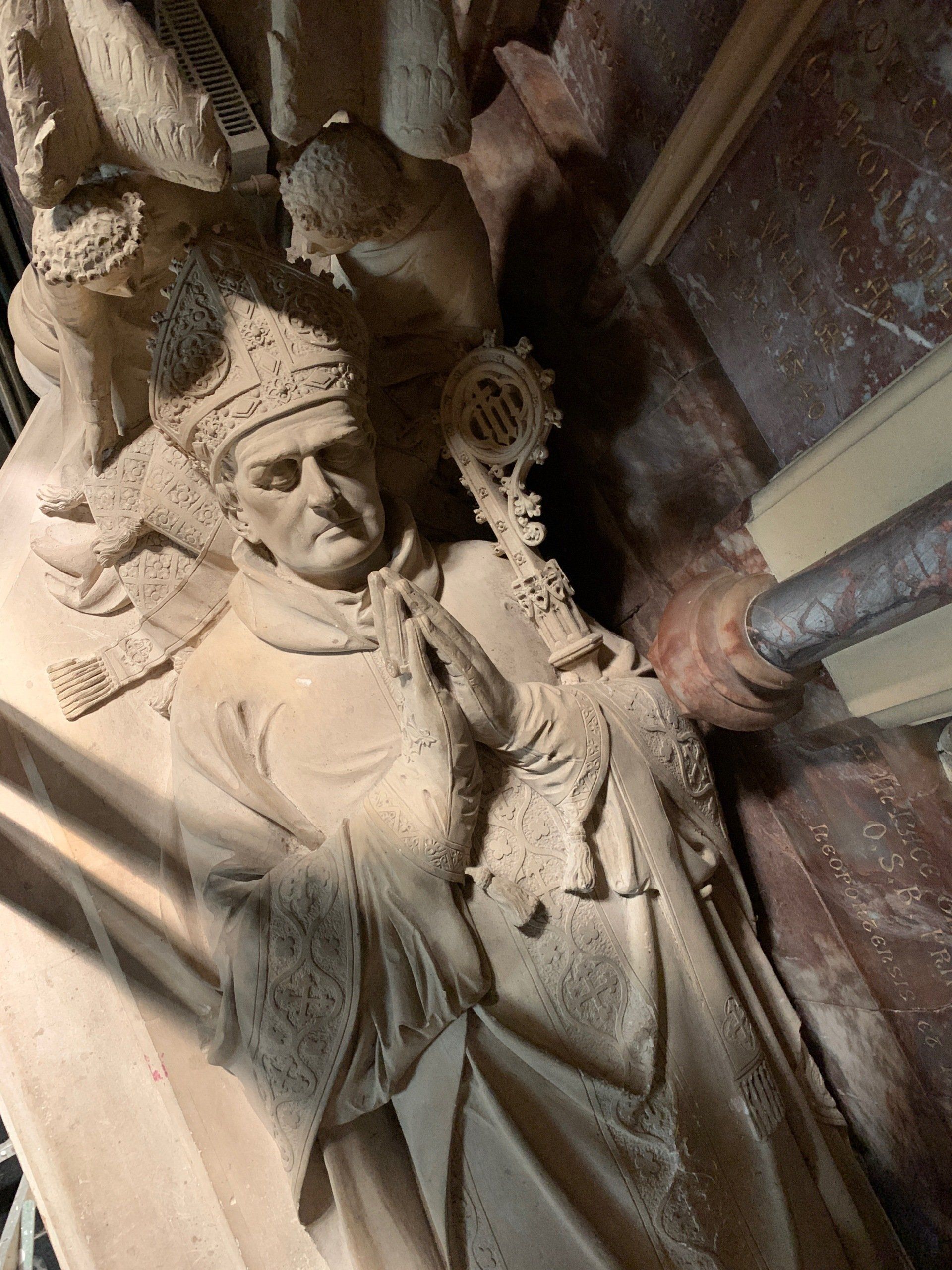Message of Abbot Paul - Friday 5th November

Message from Fr Paul for Friday, 5th November
Every day throughout November, we celebrate a Mass for the repose of the souls of all those whose names have been handed into the parish by parishioners and others. It’s a great consolation to know that when we die, there will always be loved ones and others who remember us and will pray for us. An important aspect of Christian charity is that we also pray for those who have no one to pray for them, the souls that have been forgotten and left behind, so to speak. When I was in Peru those twenty years, I was greatly touched by the number of people who had Masses said for “las almas olvidadas del Purgatorio,” The forgotten souls of Purgatory. Very often while driving along country roads or walking through the countryside or across the desert, you would come across chapels dedicated to these souls for whom there was great devotion among Peruvians. Today, 5th November, in our Benedictine and Cistercian monasteries, we pray especially for our departed relatives, benefactors and friends.
Our Gospel reading for today comes from Luke, (Lk 16: 1-8), but strangely it doesn’t carry on from yesterday with chapter 15, (Lk 15: 11-32), the third parable of the series, that of the Prodigal Son. Instead, we move on and hear that of the Unjust Steward. Let’s listen to it. “‘There was a rich man and he had a steward denounced to him for being wasteful with his property. He called for the man and said, “What is this I hear about you? Draw me up an account of your stewardship because you are not to be my steward any longer.” Then the steward said to himself, “Now that my master is taking the stewardship from me, what am I to do? Dig? I am not strong enough. Go begging? I should be too ashamed. Ah, I know what I will do to make sure that when I am dismissed from office there will be some to welcome me into their homes.”
Then he called his master’s debtors one by one. To the first he said, “How much do you owe my master?” “One hundred measures of oil” was the reply. The steward said, “Here, take your bond; sit down straight away and write fifty.” To another he said, “And you, sir, how much do you owe?” “One hundred measures of wheat” was the reply. The steward said, “Here, take your bond and write eighty.”
‘The master praised the dishonest steward for his astuteness. For the children of this world are more astute in dealing with their own kind than are the children of light.’”
When we hear this parable, we can be forgiven for wondering what it’s really about and how it fits into the teaching of Jesus. We must never forget that the parables are essentially about Jesus and the kingdom: they are not stories with a moral and we should be careful not the lose the wood for the trees by paying too much attention to the details. That unjust steward is none other than Jesus himself, who takes away the sins of the world. He takes away our debts, taking upon his shoulders the weight and burden of our sins. To put this into context: who is the Good Samaritan but Jesus, hardly an image acceptable to the scribes and Pharisees? It was the unusual way in which Jesus proclaimed the Good News, exciting for those who accept his invitation to follow him, confusing for those who don’t.









